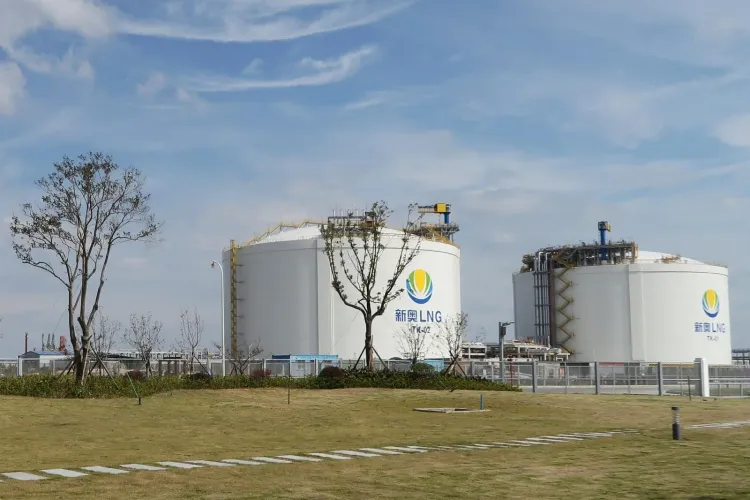What Steps Are Being Taken to Boost India's Gas-Based Economy?

Synopsis
Key Takeaways
- Government initiatives to strengthen the gas-based economy.
- Expansion of LNG availability in various sectors.
- Establishment of LNG stations along major highways.
- Recognition of LNG as a transport fuel.
- 100% FDI permitted for LNG infrastructure development.
New Delhi, Aug 7 (NationPress) The government has implemented numerous measures to foster the development of a gas-based economy, including enhancing the availability of Liquefied Natural Gas (LNG) for various sectors, as well as introducing open general licensing (OGL), as reported in Parliament on Thursday.
According to the Minister of State for Petroleum and Natural Gas, Suresh Gopi, the nation’s demand for natural gas is satisfied through domestic production along with imports of LNG, as he detailed in a written reply to the Lok Sabha.
As of the date of his response, there are eight operational LNG regasification terminals with a collective capacity of approximately 52.7 million metric tonnes per annum (MMTPA).
The government is actively advancing the initiative to establish LNG stations along major corridors including the Golden Quadrilateral (GQ), National Highways, East-West Highway, North-South Highway, and significant mining clusters throughout India.
Thus far, 13 LNG retail stations have been launched by state-owned oil and gas companies, with an additional 16 stations owned by private firms also in operation, according to the Minister.
To promote the use of LNG as a transport fuel, the government has officially recognized LNG as a suitable transport fuel and has set emission standards for LNG vehicles.
The government has also updated the Static and Mobile Pressure Vessels (Unfired) (Amendment) Rules, 2025 to permit LNG-fueled vehicles equipped with spark ignition or compression ignition engines to operate in hazardous environments and facilitate LNG mobile dispensing in non-transport sectors such as railways, mining, waterways, and testing laboratories, among others.
In 2020, the Petroleum and Natural Gas Regulatory Board (PNGRB) issued a notification allowing entities to establish LNG Retail Outlets (RO) without needing CGD authorization from the PNGRB, applicable solely for the operation of LNG stations dispensing LNG in liquid form for the transport sector.
The Minister also emphasized that permitting 100% Foreign Direct Investment (FDI) under the automatic route for establishing LNG infrastructure, including terminals, and the OGL category for LNG imports, is crucial for building a robust gas-based economy.









